
#31 Methods Consult – Conceptual Frameworks, Theory, and Theoretical Frameworks

(Photo E. Cronberg)
Episode article for reference
Varpio, L., Paradis, E., Uijtdehaage, S., & Young, M. (2020). “The Distinctions Between Theory, Theoretical Framework, and Conceptual Framework”. Academic Medicine: Journal of the Association of American Medical Colleges, 95(7), 989–994.
Enjoy listening to us at your preferred podcast player:
Apple Google Spotify Spreaker
In this episode, Lara Varpio is answering a question from a listener; doing so, she’s highlighting some of the differences that make a difference between those 3 interconnected concepts: conceptual framework theory and theoretical framework.
.Question from a listener:
Today’s methods consult is a direct reply to a request from a listener. We got a message from Aayush Gabrani and today, I’m gonna offer this episode as a reply. Aayush wrote:
“I am a new clinical faculty at University of Minnesota in Pediatrics and recently completed my MHPE from Maastricht University. Throughout my last 2 years of Masters, the PAPERs Podcast (and KeyLIME before that) had helped me a lot!! Especially your Methods consult episodes. I used to listen to the podcast everyday while working out in the gym (i got through all 400 something episode in 2 years because i listened at 1.5x speed, though I know evidence on this is still debatable!). It all definitely helped me write my thesis and gave me confidence to defend it last month. On the topic of methods consult episodes, one of the most basic and foundational episodes is the one on theory, theoretical framework and conceptual framework. Your paper on this was the first and most frequently read paper for me in the last 2 years. However, despite reading it so many times and listening to the methods consult episode, I have always wondered how to depict those ideas in a model – I tried creating 2 models for that, tried to explain it to students and faculty in MHPE class but no one quiet understood/ agreed with that diagram. Would you be kind enough to provide your feedback on that?” /Aayush Gabrani

Answer from Lara:
Well, Aayush, I took a look at your figure and I think it has strengths but I want to suggest some modifications. So, I’m posting my figure here below and I’m gonna walk through the differences between three interconnected concepts: conceptual framework, theory, and theoretical frameworks.
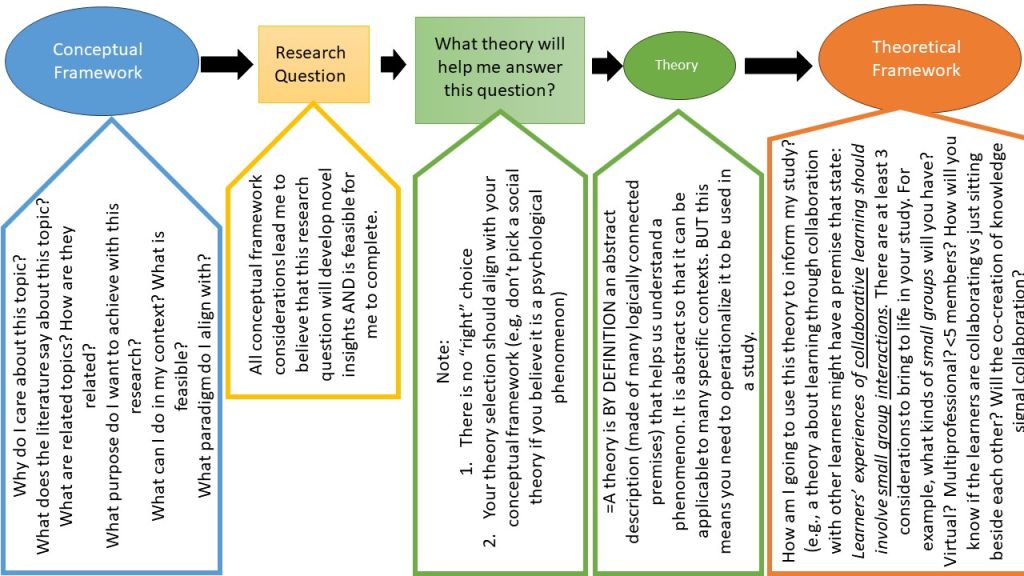
The figure is arranged from left to right, which may suggest a linear process. However, the arrows moving from conceptual framework through theory to theoretical framework do not necessarily indicate a linear progression. In fact, as we’ll discuss today, the process can be iterative, with researchers going back and forth across different pieces as they refine their thinking and make new choices. This often requires revising and reworking designs. To begin, let’s focus on your conceptual framework.
Conceptual framework
What is a conceptual framework? It is the justification for why a given study should it be conducted. The conceptual framework describes the state of known knowledge. Usually that takes the shape of a litterature review. It identifies gaps in our understanding and it outlines some methodological underpinning. That answers essentially 2 questions. Why is this research important, and what contributions might these findings make to what’s already known?

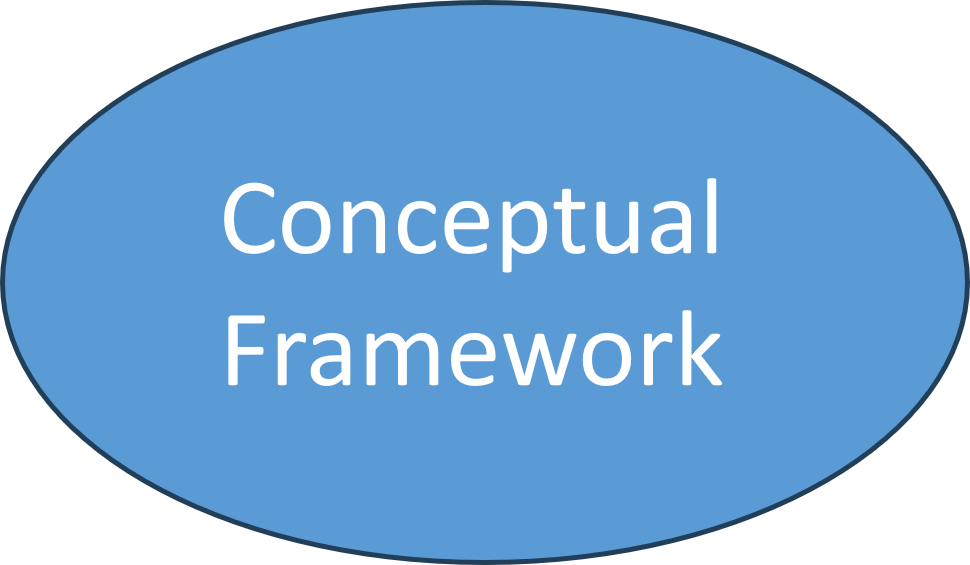
Research question
Your research question is something that takes all of those conceptual framework considerations. And writes a question that’s meaningful. And writes a question that’s meaningful.

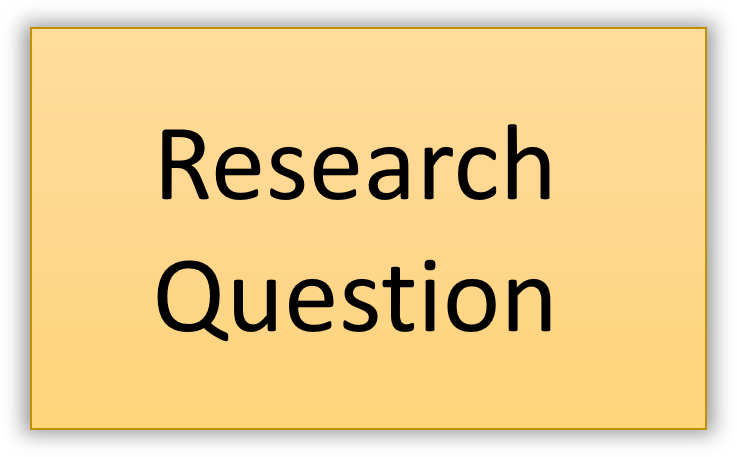
Finding right theory
When considering the question of which theory will help answer a research question, it is important to recognize that theory is not a single, definitive answer. Rather, theory is a series of different options, each with its own unique lens that can help researchers see the phenomenon of study in different ways. Therefore, there is no one “right” theory choice. However, it is important to take into consideration the conceptual framework and ensure that the theory selection aligns with it.

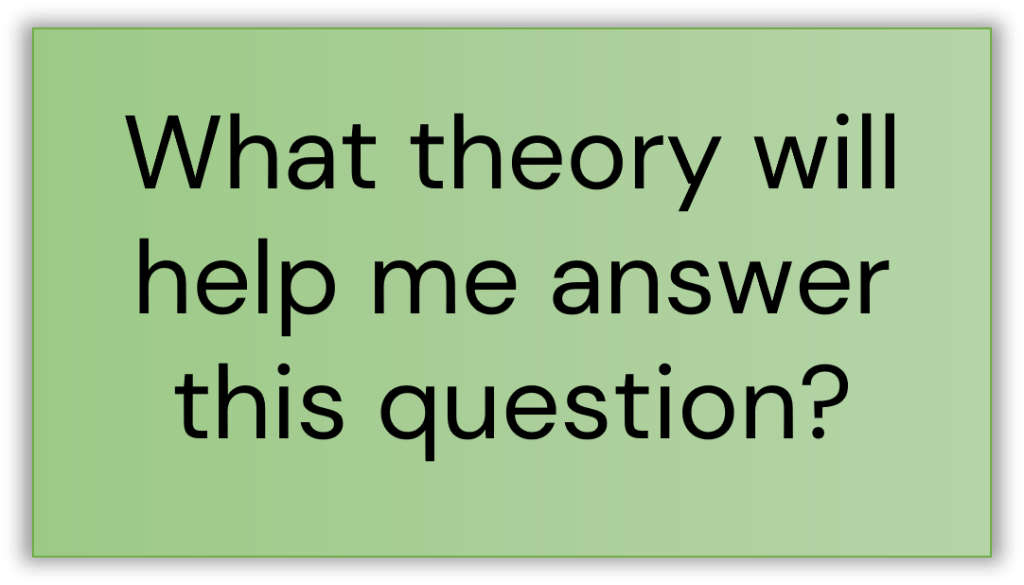
Theory
The abstract nature of theories allows them to be applied to different contexts, making them more generalizable. However, if a theory is too abstract, it may not be useful for a specific study. In such cases, the theory needs to be operationalized, which involves taking the abstract concepts and turning them into measurable observations that can be used in the study. This means you need to operationalize the theory so that you can use it in the study. You need to take it out of the abstract and fit it into your context into your study design.

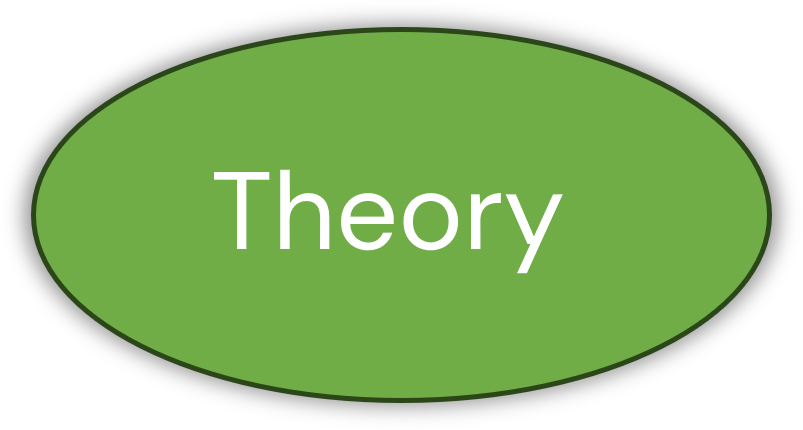
Theoretical framework
First we had our conceptual framework from which we built a question. We picked a theory and now this theory is too abstract for us to use. So what are we going to do? You guessed it. We’re going to build a theoretical framework.
A theoretical framework is a “….logically developed connected set of concepts and premises developed from one or more theories that a researcher creates to scaffold To create a theoretical framework, the researcher must define any concepts and theories that will provide the grounding of the research, unite them through logical connections and relate these concepts to the study that is being carried out. In short, a theoretical framework is a reflection of the work the researcher engages in. To use a theory in a given study.” (Varpio et al., 2020).
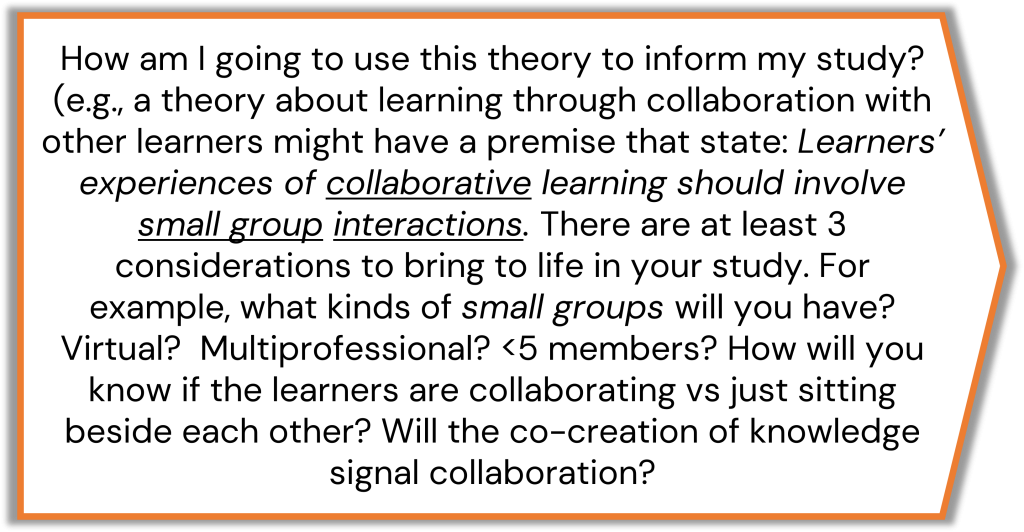
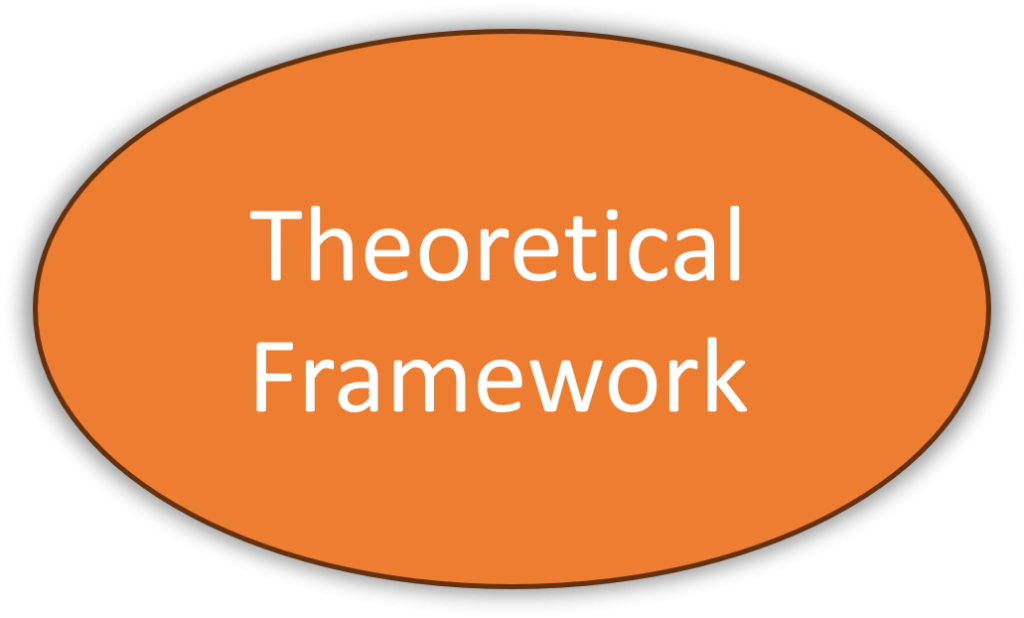
Concluding remarks
When you are thinking about theory, theoretical frameworks, conceptual frameworks, it’s really important to remember that they live together and they inform each other. So, remember we talked about how you, as you go on, you might go back into the process or go backwards to the left hand side of the diagram.
Comments
Thank you all for listening. Listeners, there are a lot of people listening who have questions about a specific topic in our field, about a methods related concept, or about life as a clinician educators. Please write to us with your question and we will reply—maybe even, like today, with an episode dedicated to answering your letter. And to Aayush, thank you for listening to the podcast. And thank you for caring so much about doing rigorous research. It is thanks to the care and attention of researchers like you that we can trust our knowledge base to be a strong foundation for evidence informed/guided educational processes and programs.
-
Dear Lara and esteemed team
I had this podcast in my bookmarks but finally I have successfully listened to it at my own pace. Thank you it was so useful. I am periodontist and academic in Malaysia and in my 3rd year of Masters in Clin Ed at the university of Edinburgh. I had come across your paper that you around this topic (which by the way has been so instruemental in dilineated these concept yet integrsting them as a gestalt) as I was working on my proposal for dissertation. And I do feel I have been going back and forth the diagram that you have exposited. I wonder at any point if the RQ doesnt fit well because of the nature of generated qualitative data for a specific context. How does one go about it applies for novice researcher like me, can RQ feel like a moving target ofcourse still interested in the prime phenomenon but there is say another concept comes into the picture. I hope my question doesnt sound ambiguous?

1 comments